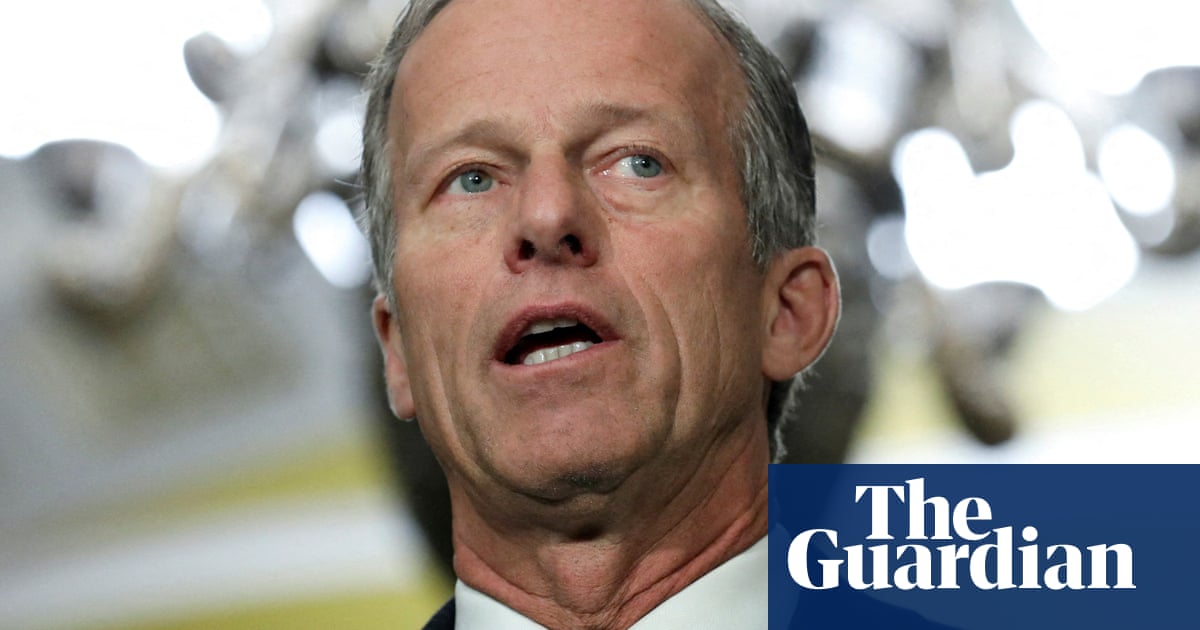Elon Musk said, very loudly and very publicly, what is usually the quiet part of the role of money in US politics.
“Without me, Trump would have lost the election, Dems would control the House and the Republicans would be 51-49 in the Senate. Such ingratitude,” he wrote on his X social media platform amid an ongoing feud with Donald Trump.
When rightwing commentator Laura Loomer wrote that Republicans on Capitol Hill had been discussing whom to side with in the inter-party feud, Musk replied with a nod toward the long tail of his influence. “Oh and some food for thought as they ponder this question: Trump has 3.5 years left as President, but I will be around for 40+ years … ,” Musk wrote on X.
Billionaires in the US often seek to influence politics in big and small ways, throwing their money and influence around to extract what they want from the government. But few are as explicit and influential as Musk has proven in the past year – and it’s showing just how transactional and broken US governance has become.
The Trump-Musk battle exemplifies the post-Citizens United picture of US politics: the world’s richest person paid handsomely to elect his favored candidate, then took a formal, if temporary, role with a new governmental initiative created for him that focused on dismantling parts of the government he didn’t like.
We’re sitting ringside to a fight between the mega-rich president and the far richer Republican donor to see who can cut more services from the poor. As one satirical website put it: “Aw! These Billionaires Are Fighting Over How Much Money to Steal From Poor People.”
Fifteen years ago, the US supreme court ruled that corporations and outside groups could spend as much as they wanted on elections. In that ruling, conservative justice Anthony Kennedy said: “The appearance of influence or access, furthermore, will not cause the electorate to lose faith in our democracy.”
In the years since, it’s become clear that these infusions of wealth have eroded democracy, with Musk’s ostentatious example accelerating an already out-of-control level of money in politics. Musk spent nearly $300m to elect Trump in 2024. It’s the billionaire’s government now.
“Fifteen years after that decision, we’re seeing the full culmination of living under a Citizens United world – where it’s not just elections that are for sale, but it’s that our entire government, and the apparatus of our government, is up for sale,” Tiffany Muller, the president of End Citizens United, told the Bulwark earlier this year.
Musk isn’t alone here: in races up and down the ballot, ultra-rich donors are throwing around their cash to get their favored candidates elected. This is the standard state of play for politics in the US now, in both political parties. Bernie Sanders confronted Democrats at their convention last year to say: “Billionaires in both parties should not be able to buy elections, including primary elections.”
Earlier this year, Musk poured big money into a Wisconsin judicial election, but lost to the Democratic candidate. And he’s sent small-dollar donations to Republicans who wanted to go after judges who ruled against the Trump administration. The threat of his money, even if it is uneven and has an inconsistent success record, looms large for both political parties.
But, by virtue of his unelected role, Musk couldn’t do as much as he wanted to stop Trump’s signature spending bill – or so it seems so far. Trump’s “big, beautiful bill” didn’t cut enough spending or favor Musk enough or otherwise meet his litmus test for a budget. And when the administration stopped working for him, he turned on it, blazing out the door in a chaotic fashion.
It’s a fitting coda to the uneasy alliance between Trump and Musk that started with a warm embrace and front-row status for the ultra-wealthy when Trump took office. The fact that Musk holds such sway over the budget process is in itself corruption. Trump has said Musk knew what was in the bill, the undertone being that the administration sought his approval before the public explosion.
Musk embraced a brawling style of political spending that is rare among the uber-wealthy, who tend to let their money speak louder than their public words. One expert in philanthropy previously told the Guardian Musk stood out because of his “complete eschewal of discretion as a mode of political engagement”.
Musk is now rallying his followers on X to reach out to their members of Congress and kill the bill, a quest that could be successful, depending on how Republican lawmakers shake out when they’re forced to decide between their ideologue president and a megadonor known for his vindictiveness.
In rightwing media, the feud has created a chasm. On Breitbart, one commentator noted how Trump was “sticking his finger in the eye of his biggest donor and that never happens”. In the American Spectator, one writer opined that Musk did not elect Trump: “the American people did.” But in the pages of the Washington Examiner, Musk’s stance on the bill was praised because Trump’s budget plan “deserves to die”.
“I don’t mind Elon turning against me, but he should have done so months ago,” Trump wrote to cap off a series of posts and public comments about Musk. Musk has “lost his mind”, the president said in a TV interview Friday.
So far, Republican officials are lining up behind Trump. “President Trump has done more than any person in my lifetime to earn the trust of the movement he leads,” JD Vance said.
If Musk ultimately loses, he could take his money and run elsewhere. He floated the idea of creating a third political party, a prospect that’s been tried many times before but without the wealth infusion and bully pulpit he’d offer to the cause. Democrats, themselves quite reliant on rich donors, will lobby for him to switch sides. The Democratic representative Ro Khanna suggested the party should “be in a dialogue” with Musk.
Although Khanna, who represents Silicon Valley and has called for the left to embrace economic populism, saw intense backlash against his comments from his party, he doubled down.
“If Biden had a big supporter criticize him, Trump would have hugged him the next day,” he wrote on X. “When we refused to meet with @RobertKennedyJr, Trump embraced him & won. We can be the party of sanctimonious lectures, or the party of FDR that knows how to win & build a progressive majority.”

 German (DE)
German (DE)  English (US)
English (US)  Spanish (ES)
Spanish (ES)  French (FR)
French (FR)  Hindi (IN)
Hindi (IN)  Italian (IT)
Italian (IT)  Russian (RU)
Russian (RU)  2 weeks ago
2 weeks ago
























Comments